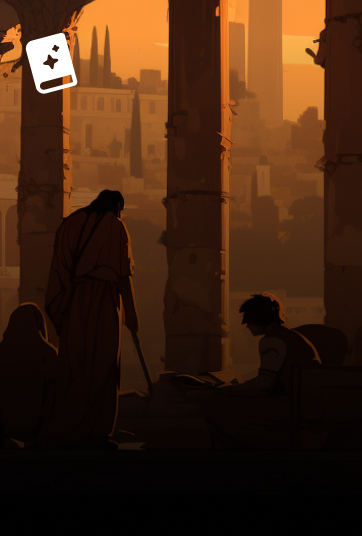
Agency
Ratings44
Average rating3.7
AN INSTANT NEW YORK TIMES BESTSELLER “ONE OF THE MOST VISIONARY, ORIGINAL, AND QUIETLY INFLUENTIAL WRITERS CURRENTLY WORKING”* returns with a sharply imagined follow-up to the New York Times bestselling The Peripheral. William Gibson has trained his eye on the future for decades, ever since coining the term “cyberspace” and then popularizing it in his classic speculative novel Neuromancer in the early 1980s. Cory Doctorow raved that The Peripheral is “spectacular, a piece of trenchant, far-future speculation that features all the eyeball kicks of Neuromancer.” Now Gibson is back with Agency—a science fiction thriller heavily influenced by our most current events. Verity Jane, gifted app whisperer, takes a job as the beta tester for a new product: a digital assistant, accessed through a pair of ordinary-looking glasses. “Eunice,” the disarmingly human AI in the glasses, manifests a face, a fragmentary past, and a canny grasp of combat strategy. Realizing that her cryptic new employers don’t yet know how powerful and valuable Eunice is, Verity instinctively decides that it’s best they don’t. Meanwhile, a century ahead in London, in a different time line entirely, Wilf Netherton works amid plutocrats and plunderers, survivors of the slow and steady apocalypse known as the jackpot. His boss, the enigmatic Ainsley Lowbeer, can look into alternate pasts and nudge their ultimate directions. Verity and Eunice are her current project. Wilf can see what Verity and Eunice can’t: their own version of the jackpot, just around the corner, and the roles they both may play in it. *The Boston Globe
Tags
Series
Featured Series
2 primary booksJackpot
Jackpot is a 2-book series with 3 primary works first released in 1891 with contributions by William Gibson.
Reviews
Popular Reviews
Reviews with the most likes.
Gibson's follow-up to The Peripheral is set in the same world(s) as that novel but this time he's expanded on it. In The Peripheral it was established that through some arcane technological wizardry it became possible to communicate with an alternate timeline, or Stub as they are called, one that at some point in the past branched off from our own. In Agency there are multiple Stubs, the creation of which are something of a hobby for the bored super-rich of our future (one where the so-called Jackpot has happened, a combination of pandemics and economic disasters and global warming that has killed off 80% of the world's population and left an authoritarian world government called The Klept).
Now, in a “present day” stub where Clinton won the election and Brexit never happened, the world edges closer to nuclear conflict in the Middle East and Verity (the “app whisperer”) is a young woman starting a new job with a tech company called Cursion to test a new form of AI software. Which sets her life off on a whole new course when the AI, called Eunice, is shown to be more advanced than anything previous and Cursion tries to shut her down. Meanwhile in the 22nd century future Ainsley Lowbeer, nominally a police inspector but really a Stub troubleshooter, contacts Verity through Will Netherton (a publicist) and a Eunice designed combat drone piloted by Conner from the original Stub featured in The Peripheral.....clear so far?
It's a lot to take in and the ultra short chapters that alternate between Verity and Lowbeer's timelines take some getting used to. It's like tuning in a radio. Once you get the right frequency the story kicks into gear and Agency carries you through Verity's desperate escape from the clutches of Cursion with the aid of various people Eunice has put in place before she was shut down. Meanwhile Lowbeer pulls strings to try and avoid the impending nuclear war in Verity's timeline while also fending off threat to her position from within The Klept.
It's a novel that moves at breakneck speed and the world-building is superb. The alternate reality is convincing as is the possible future that Lowbeer exists in. Gibson is a great writer, the prose unfussy and to the point, the story ever more engrossing and hopefully this won't be the last visit to the worlds he's created here.
Recommended.
It would have been a vastly superior book if Gibson had spent less time on Twitter and Google Maps as he was writing it.




























